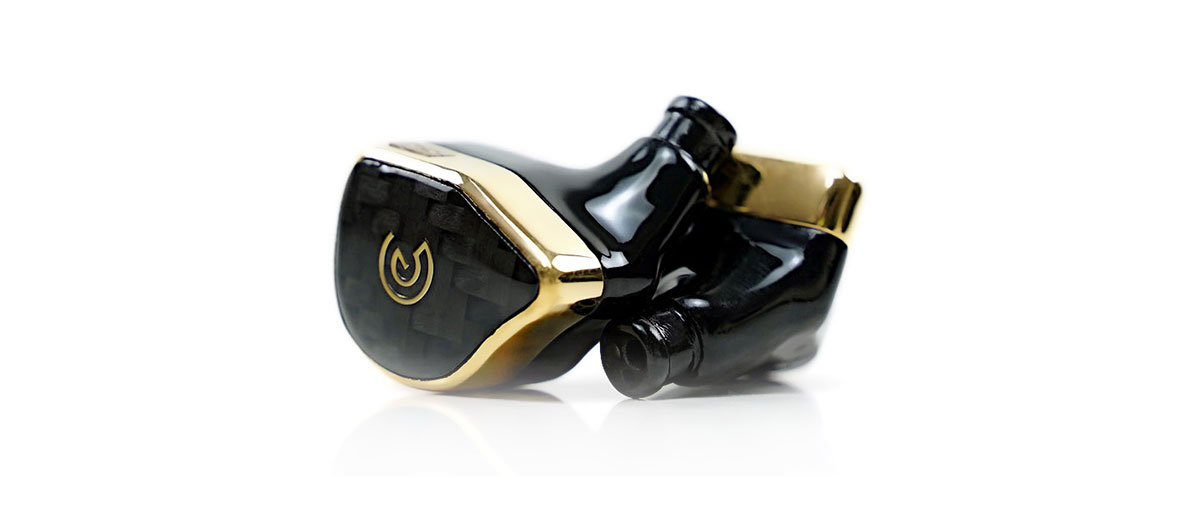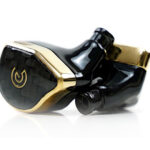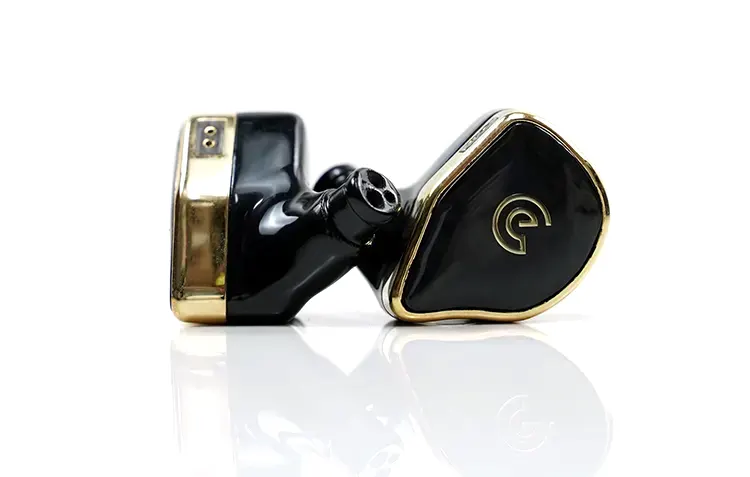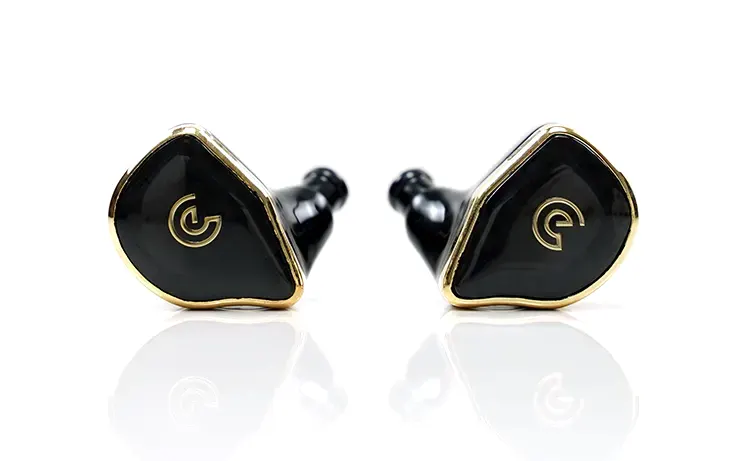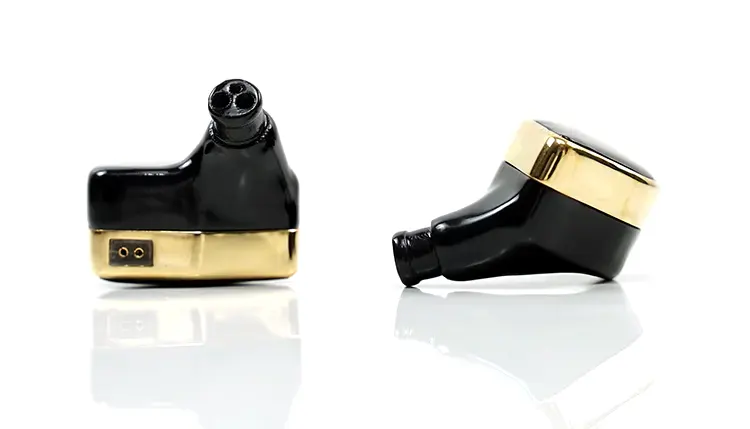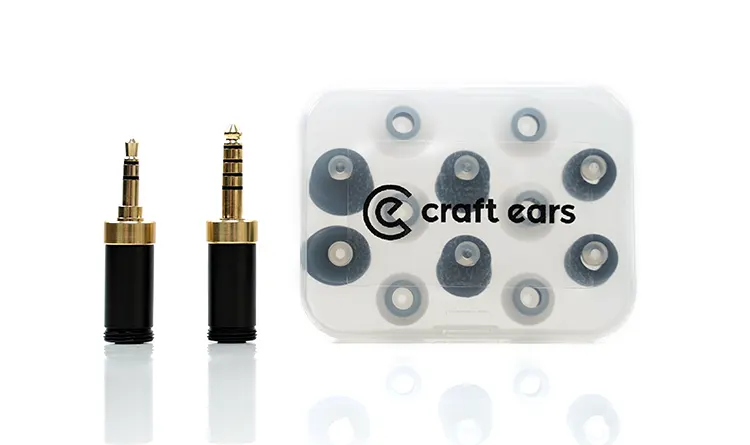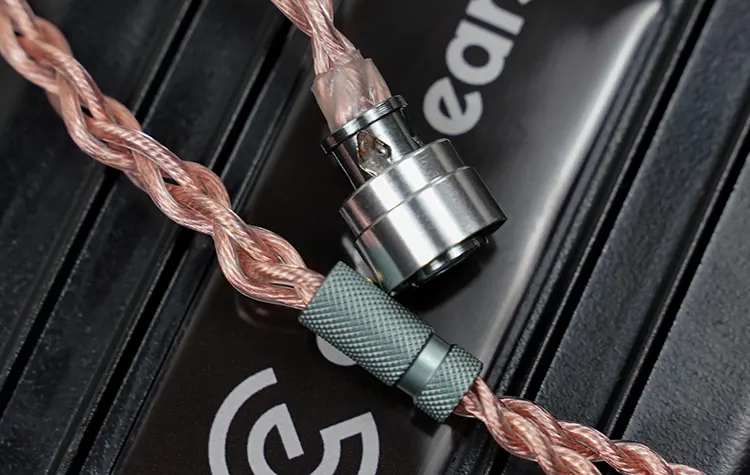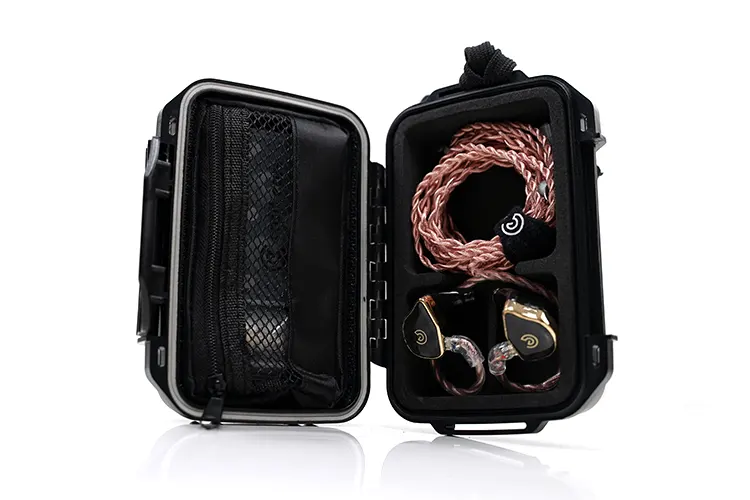Today, Marcus reviews the Craft Ears Omnium, which is the Polish company’s latest flagship tribrid dynamic, planar, and BA driver universal in-ear monitor. It is priced at €2499.
Disclaimer: This sample was sent to me in exchange for my honest opinion. Headfonics is an independent website with no affiliate links or status. I thank Craft Ears for this opportunity.
Click here to read up on Craft Ears products we have previously reviewed on Headfonics.
Note, this review follows our current scoring guidelines which you can read in more detail here.
It has been a few years since we last reviewed Craft Ears IEMs with the 6 and the 4 custom versions in 2021 and 2020. Since then, the product lineup has matured with custom and universal lines expanding significantly with some of the latest driver technology on show.
The Omnium was released in late 2023 and is the company’s flagship in-ear monitor with options for custom and universal formats. Our sample here is the universal version.
It retails at €2499 so it is by no means the most expensive high-end monitor in 2024 but is a significant purchase, nevertheless.
In what must be a Polish penchant for uniqueness, this is the second IEM this year from the country that I have reviewed that includes a midrange planar driver instead of the usual array of BA drivers. It is also notable for the lack of electrostatic drivers, a high-end love-in for several years.
As a result, you get plenty of articulated speed in the Omnium mids but if you have read my reviews of Craft Ear IEMs a few years ago you will remember just how much attention is paid to the quality of the bass performance. That is the case also with their flagship monitor tuning.
Features
The Craft Ears Omnium is a ‘tribrid’ universal, (or custom), in-ear monitor with a mix of dynamic, BA, and planar drivers using a 6-way crossover design.
The precise configuration is a single 9.2mm LSR dynamic driver for the lows, a 10mm planar driver for the mids, a single BA for the mid/highs, dual BA for the highs, and a pair of BA tweeters for the ultra-highs.
LSR or Liquid Silicone Rubber (LSR) surrounds are an increasingly popular choice these days for dynamic driver designs as they allow the driver to perform with a very low THD.
Similar examples and 9.2mm driver sizes are used in high-end models such as the Vision Ears EXT and popular lower-end models such as the Elysian Acoustic Labs PILGRIM.
The Omnium’s internal acoustic space is a mix of tubeless combined with the Craft Ears’ latest SES 3.0 (Space Expanse System) which I first encountered on the Craft 6 model back in 2021.
SES involves pushing the high-frequency tweeter right up into the nozzle to maximize its presence and building a specific chamber around it to control its response relative to the rest of the drivers’ tuning.
The Omnium has a 12Ω impedance rating but note that in a similar fashion to Custom Art and 64 Audio, Craft Ears use flat impedance technology called True Load. That means there should be no impedance skew with high output impedance amplifiers such as the recently reviewed ONIX Mystic XP1.
Design
The Omnium aesthetics are high impact with a mirror-like 18K carat gold-plated rim and logo accents. Underneath, we have a polished piano black main shell and on top, a set of carbon fiber patterned face plates that vary in intensity depending on the angle you view them.
The 3D-printed shells are gently rather than aggressively contoured with a slight angle into a lengthy but elegantly designed nozzle. Heck, even the flush-mounted 2-pin connectors look beautifully clean and polished. Visually, the Omnium will stand out from the crowd quite a bit, and yes, it does look high-end.
It also has a fairly hefty and robust build and is not your usual lightweight resin mold. In your hand, the Omnium shells feel substantial with a slightly larger-than-average set of dimensions.
I was expecting the Omnium to be a finger-print magnet with that glossy finish but that has not been the case thus far. I might temper that with a word of caution to treat those gold fenders with a bit of loving care as I could see the potential for scuff marks when I was pixel-peeping the image files.
Comfort & Isolation
Despite the weightier build and softish contours, the Omnium fits well for my ears. There are no awkward bumps or uneven pressure points and the smooth finishing on the resin provides an almost frictionless insert.
Passive isolation is not bad for a dynamic driver model but I did struggle to find any venting ports on the exterior of the shells. I believe the design has a very slimline hidden vent between the plates and the main shell so that’s a clever move and keeps the aesthetics clean.
The listed passive isolation is -26 dB, which is above average considering apex filter hybrids from 64 Audio max out at -20 dB. I found the performance on par with the VE10 and Annihilator 2023 for low-frequency isolation and a shade behind for higher-pitched background noise.
Tips
The slightly rigid molding lines will mean it’s a bit less forgiving of individual ear shapes than customs and some of the more aggressively designed resin shapes in the market today.
Therefore, the supplied tips will play an important role in the seal and performance of the Omnium. You get two types of tips as stock; both are silicone, one a translucent narrow bore single flange and the second a wide fore black dual flange.
Both have their pros and cons. I found the dual flange wide bore to seal more and increase the penetration depth slightly creating a more secure fit.
With the narrow bore single flange tips, the seal was almost as good though I had to push in and then pull out slightly to the best balance between depth and passive isolation.
The pros of the narrow bore tips are in their performance. If you prefer a denser tone with better bass weight and higher tonal contrast these will give you that. The dual flange tips are darker and smoother sounding through the mids and highs but can produce a more subdued bass weight.
Stock Cable
There isn’t a huge amount of information on the supplied Omnium stock cable except that it is an OCC silver-plated copper 4-wire geometry with a PVC translucent jacket and that it’s 1.5m instead of the usual 1.2m lengths in deference to stage artists’ requirements.
I am also going to presume that the cable uses a Litz-type geometry to prevent the ‘green’ oxidization effect that non-Litz builds can suffer from over time.
I suspect users will be more interested in the interchangeable plug system applied to the stock cable. This will allow you to change the type of jack to suit whatever connection you will be using.
Craft Ears has supplied 2 plugs with the Omnium; a 3.5mm TRS single-ended type, and a 4.4mm Pentaconn termination. Both plugs are finished in a matching polished black and gold accent that complements the shell designs nicely.
However, the threaded locking mechanism is finished in a plainer aluminum finish which clashes a little with the black and gold of the plugs when in place. I would love to see that changed, along with the same black and gold finish for the splitter and the connectors to complete the look.
Otherwise, the Omnium stock cable is nice and light with a nice grippy knurling finish on the splitter and chin cinch, low microphonics, and memory retention making it a very easy cable to handle.
There is some springy memory coating above the silicone-formed connector barrels but it’s suitably soft so you should not feel any discomfort on the ear when in use.
Packaging & Accessories
The compact Omnium black retail box is a bit low profile for a flagship offering though I have to give a lot of credit to Craft Ears for designing an accompanying carry case rich in functionality and protection.
The Omnium case is loosely based on the classic Pelican 1010 case format which I prefer over the newer leather-finished puck styling in terms of protection.
However, this version has a zip pouch attached to the underside of the lid which is kind of cool and not something I have seen before. I am used to seeing a mesh upper, so this zipped pouch offers more stability and protection from things rolling around when carrying it.
Sadly, there is not much more room beyond the cable and the Omnium shells so this is strictly a one IEM container. Aside from that, you get your tips and jacks in a plastic bag and a nice little sealed tip tray, all safely tucked into that zipped pouch.
Click on page 2 below for my sound impressions and recommended pairings.

